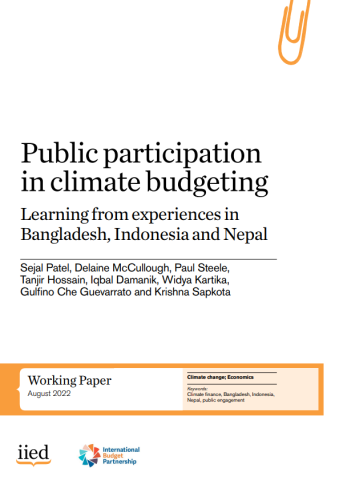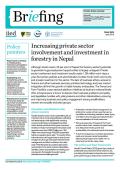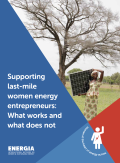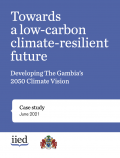
This case study explores the role of public participation in climate budgeting in Nepal, Bangladesh and Indonesia by assessing these governments’ adherence to the Global Initiative for Fiscal Transparency (GIFT) principles of public participation in fiscal policy.
It also analyses secondary data on household climate and disaster priorities against government climate and disaster expenditure estimates, and finds that households in these countries are significant financiers of climate resilience. But their governments are not yet enabling households to meaningfully participate throughout the public financial management (PFM) process that would lead to better alignment and targeting of the public climate budget.
The paper also identifies cross-country learning and makes recommendations to support improvements in public accountability and participation processes, particularly through interventions to improve national adherence to the GIFT principles.




